Truthdiggers of the Week: Pardiss Kebriaei and the Center for Constitutional Rights
The senior attorney at the celebrated civil liberties group is pushing for the prosecution of U.S. officials who tortured detainees and terrorism suspects—an issue the Senate's report on the subject was conspicuously silent about.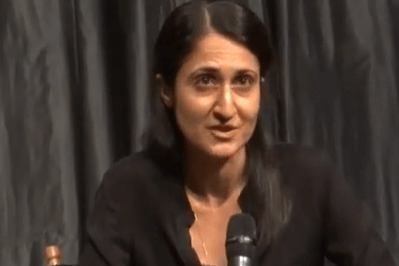 Pardiss Kebriaei, senior attorney with the Center for Constitutional Rights. Photo by YouTube/April Watters
Pardiss Kebriaei, senior attorney with the Center for Constitutional Rights. Photo by YouTube/April Watters
Every week the Truthdig editorial staff selects a Truthdigger of the Week, a group or person worthy of recognition for speaking truth to power, breaking the story or blowing the whistle. It is not a lifetime achievement award. Rather, we’re looking for newsmakers whose actions in a given week are worth celebrating.
On Thursday, national security reporters Glenn Greenwald and Jeremy Scahill appeared at the IFC Center in New York City’s Greenwich Village after a screening of Scahill’s Oscar-nominated documentary, “Dirty Wars.” With them was Pardiss Kebriaei, a senior lawyer at the legal advocacy group the Center for Constitutional Rights whom Scahill introduced as one of the United States’ “incredible freedom fighters” who “has ensured that prisoners who were abducted from around the world and taken to Guantanamo would have legal representation.”
The group was gathered to discuss what Scahill described as the “inadequate, not complete” release earlier this month of the Senate’s report on the torture of detainees and terrorism suspects by the CIA and Bush administration, an account the journalist added “only holds a small part of the U.S. national security apparatus accountable.” At the talk, and in an interview with Truthdig the following day, Kebriaei spoke about the necessity — not just morally, but according to U.S. law — of an official investigation to determine whether the people responsible for the Senate’s findings should be prosecuted in court, an issue the Congressional report was conspicuously silent about.
“Will it happen under the administration? I don’t think so, no,” Kebriaei told the crowd, members of which responded with sighs and gasps. “Will it happen in Europe and will there be ripple effects and shifts that happen that may lead to some kind of accountability five to 10, 20 years from now? Yes I do think that’s possible.”
The next day she said more over the phone. “There was nothing in the Senate report about pursuing prosecutions.” Why? “I think there are implications for people in government, in Congress, in the Justice Department, and in the White House, because there’s responsibility to share. The director of the CIA, John Brennan, was involved in the ‘enhanced interrogations.’ The members of this administration are thinking about themselves, but whether the Justice Department goes forward with the investigations and prosecutions or not, it doesn’t take away from the legal requirement to do so. The [United Nations] Convention Against Torture — which was ratified by Ronald Reagan — legally requires all countries to investigate with the intent to prosecute if evidence is found. The U.S. backed this requirement in 1984. They argued convincingly that it was important to keep this provision because states that tortured as a matter of policy were unlikely to prosecute their own officials. So it was important for other countries to do so.
“Most of the world is a party to the convention,” Kebriaei continued. With this in mind, on the behalf of detainees held at the U.S. military prison at Guantanamo Bay in Cuba, the Center for Constitutional Rights filed requests for prosecutors in Germany and Spain to look in to allegations of torture by the U.S. government. Both cases are pending, with a Spanish judge having ruled that the investigation, which was requested in 2009, should proceed, while the German case — which names former CIA director George Tenet and former Secretary of State Donald Rumsfeld — was submitted more recently.
What are the prospects of securing prosecutions of U.S. officials, men and women who act with apparent impunity under the protection of the world’s pre-eminent bully state? Kebriaei isn’t concerned with what appears to be possible right now.
“Saying it’s never gonna happen,” she says over the phone, before trailing off into a brief pause, “look at the experience of other countries. It happened with Pinochet in Chile. And in Argentina” with members of the military junta who ruled from 1976 to 1983. “People at the time thought it was possible. It took time but it happened. But we will never know and we will never have the chance unless we try. Everyone who is disturbed by the barbaric facts in the report, which is the best and most comprehensive evidence so far of torture under the CIA and the Bush administration, needs to press forward. It’s unacceptable to sit back and say it’s never gonna happen. Hundreds of thousands of people have been brutalized, and if there’s no accountability, it will happen again.
“Bush said he authorized this,” she continued, citing the administration’s admissions. “Cheney defended the practices. President Obama acknowledged that what happened is torture. How are we not going to hold people accountable for that?”
NSA whistle-blower Edward Snowden expressed the same attitude when he was asked about the torture report shortly after its release. “If we can run a rendition, a kidnapping, a detention program, a torture program, keep it secret for years, and then when it is revealed, hold no one to account,” he said, “what does this mean for the future direction of our society?”
As Kebriaei made clear at the talk, the public has very little confirmed information about the details of exactly whom the U.S. government has tortured and assassinated via “targeted killings” in the post-9/11 era. Most of the legal memos, which record only the acknowledged instances, are kept secret. Like many people who take both the law and human welfare seriously, Kebriaei won’t say that the U.S. stopped torturing under Obama. “He closed CIA black sites, but the orders he gave when he took office did not address anything the military was doing, and in fact he approved a revised version of an army field manual that was used under Bush for interrogating detainees in military custody and that permits solitary confinement, prolonged isolation and sensory deprivation. This includes the force-feeding that happens at Guantanamo, which both the World Medical Association and the U.N. High Commissioner for Human Rights condemn.
“There’s this very broad landscape of torture and killing that has happened under Bush and Obama,” Kebriaei said, “and the Senate report is just one critical piece of it.”
As Greenwald and Scahill said during their appearance with Kebriaei, the lawyers at the Center for Constitutional Rights were the first in the country in the years immediately after the 9/11 attacks to insist that suspected terrorists have a right to legal representation. As the chief or supporting counsel in cases seeking to hold officials accountable for the targeted killing of three American citizens (including the central case of the al-Alwaki family) and to challenge the right of the government to put Americans on “kill lists,” and as an attorney defending men currently and formerly held at Guantanamo prison, Kebriaei, who joined the organization in 2007, is fulfilling the center’s promise to champion the fundamental legal rights of all people. For this, Pardiss Kebriaei and her colleagues at the Center for Constitutional Rights are our Truthdiggers of the Week.
Hear Kebriaei, Greenwald and Scahill speak about torture at the IFC Center below.
April Watters:
Your support matters…Independent journalism is under threat and overshadowed by heavily funded mainstream media.
You can help level the playing field. Become a member.
Your tax-deductible contribution keeps us digging beneath the headlines to give you thought-provoking, investigative reporting and analysis that unearths what's really happening- without compromise.
Give today to support our courageous, independent journalists.

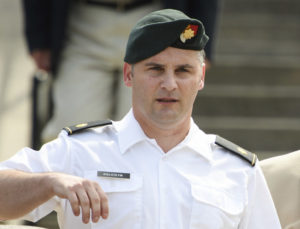
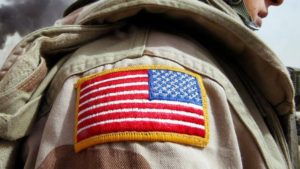
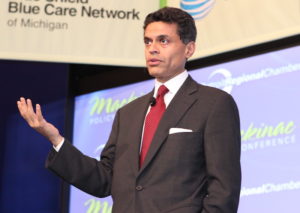
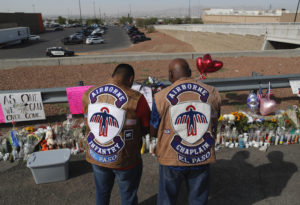
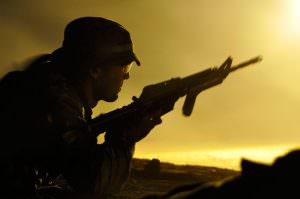
You need to be a supporter to comment.
There are currently no responses to this article.
Be the first to respond.